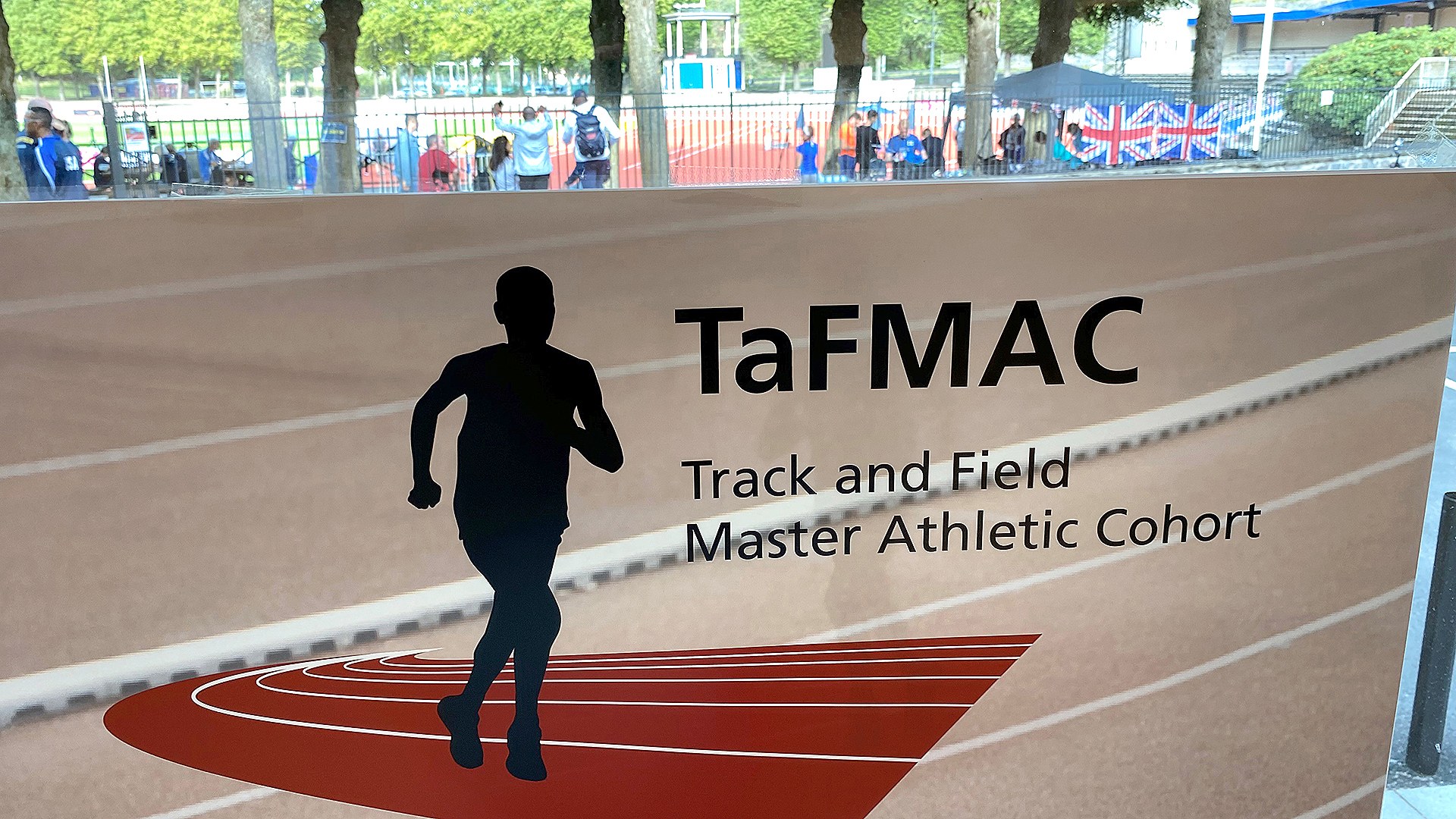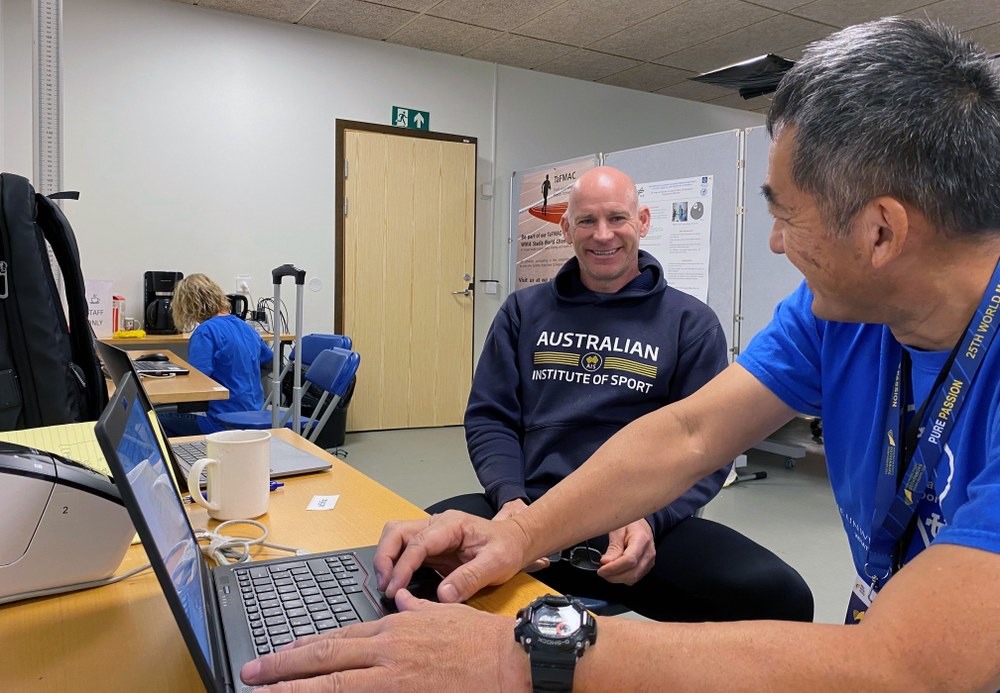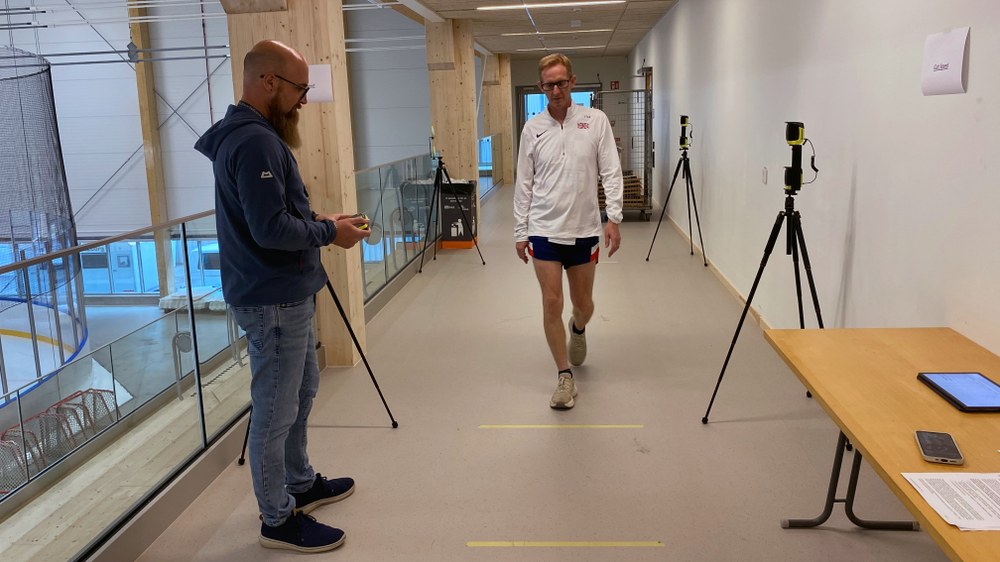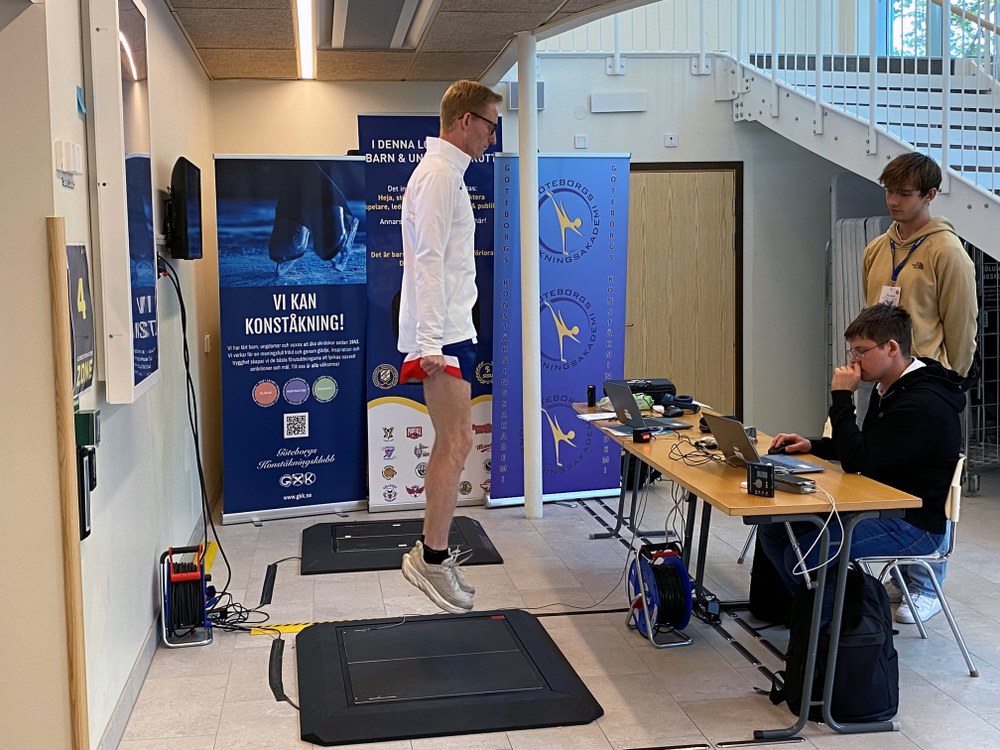Sport for older athletes: DLR collects health data from participants at the World Masters Athletics Championships


This year, the DLR Institute of Aerospace Medicine is once again taking part in the World Masters Athletics Championships (WMAC). We are investigating the fitness, training and health of athletes competing in age groups aged 35 years+ across various athletics disciplines. This year's World Championships are being held from 13 to 25 August in Gothenburg, Sweden.
The TaFMAC (Track and Field Masters Athletics Cohort) study team has been attending the European and World Championships for older athletes since 2001, playing a vital role in addressing a significant gap – the limited data available worldwide on athletes performing at this level. This study allows us to assess the benefits and risks of competitive sport beyond the age of 35.

While it is widely accepted that exercise promotes good health, questions remain about the optimum type of training and the associated risks. To answer these questions, we collect data from older athletes on fitness, training habits, nutrition, competition performance, quality of life and medical aspects.
In Gothenburg, during the first week alone, we have already examined 169 athletes across 14 different experiments. These tests have assessed muscle stiffness, jumping ability, resting electrocardiogram (ECG), blood data, resting metabolism, cognitive performance, oxygen uptake under stress, cardiac function and arterial stiffness.

Over the coming days, we will report from Gothenburg on specific investigations and insights from individual athletes.
Tags:
